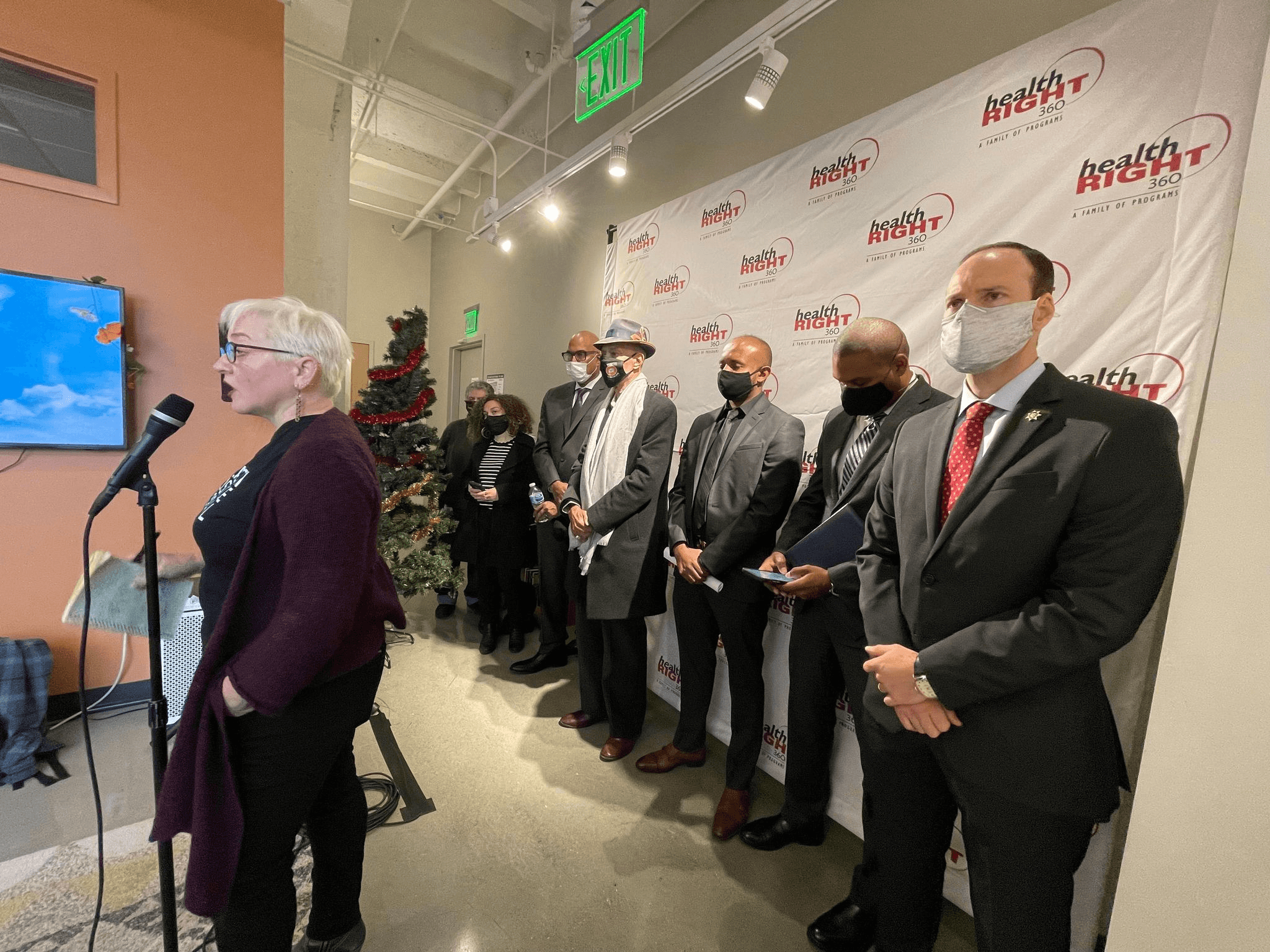Just days after San Francisco Mayor London Breed garnered national headlines by declaring a state of emergency in the city’s drug-plagued Tenderloin neighborhood, elected officials including embattled District Attorney Chesa Boudin joined with several social service nonprofit leaders to push back against her approach.
Breed’s Friday declaration would allow the city to waive certain laws to have a faster response to address overdoses and provide treatment to addicts. She also promised a “more coordinated enforcement and disruption of illegal activities” by flooding the Tenderloin with police presence–a move critics say represents a return to the failed “war on drugs.”
Shamann Walton, the president of the Board of Supervisors, said the strategy was flawed. “Over-policing has never worked to address the issues that exist, and the current crisis in the Tenderloin,” he said, “We need resources to prevent crime, and alternatives to policing to do that.”
The Board will vote Thursday on whether to approve the state of emergency.
DA Chesa Boudin and Public Defender Manohar Raju, though often opponents in court, both joined the press conference.
“We cannot simply arrest and prosecute our way-out of the problems,” said Boudin, who’s now facing a recall election. “We can’t continue to wait for the police to respond”.
Boudin said that in the past two years, his office has prosecuted over 70% felony drugs cases presented by the San Francisco Police Department–a riposte to critics who accuse him of being soft on drug criminals.
“Let’s talk about some solutions,” said Vitka Eisen, the CEO of HealthRIGHT 360, a major provider of drug addiction treatment services in San Francisco. “If we want people to stop using drugs on the street, let’s give them places to use drugs indoors.” The city is moving, albeit slowly, to open a so-called safe consumption site staffed by a team of people to help stop overdose, though the idea remains controversial–and illegal under federal law.
“If we want people to stop dying from a toxic drug supply, let’s pilot a safe supply program for people who use drugs,” Eisen continued, and “if we want to decrease crimes, let’s expand the Dream Keeper Initiative here.” The initiative would reinvest $120 million from law enforcement into San Francisco’s Black and African American community. Eisen clarifies that there are middle grounds, not just “lock them up” or “not lock them up”.
Breed responded on social media: “We need to act with urgency to provide the services and treatment options that this public health crisis demands,” she said on Facebook and Twitter. She emphasized that the emergency declaration can cut the wait time for critical services and thus save lives.
The Mayor’s spokesperson, Mason Lee, issued a statement Monday saying that the Tenderloin is “for families, for seniors, and for many of our immigrants, and they deserve safe and clean streets.” Breed’s policy is about providing investments and resources, while “people will not be allowed to reject these services and continue to break the law on the streets,” the statement said.
